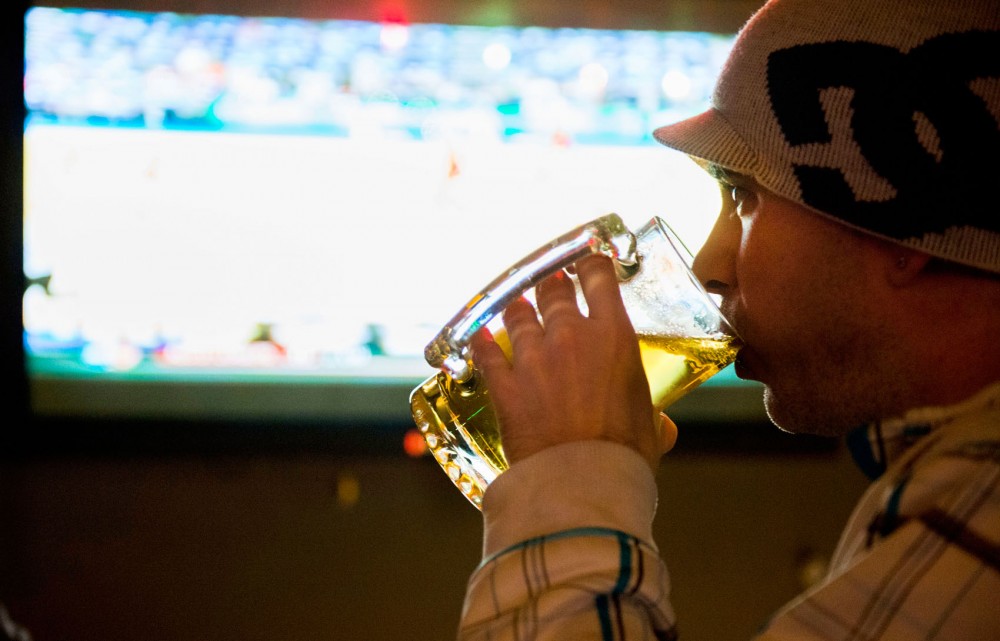Greg Pillsbury sold more food last year than ever before, but he also sold more booze.
For the first time in nine years, the city found Burrito Loco Bar and Grill violated the 60-40 rule, which requires at least 60 percent of a restaurant’s revenue to come from food sales.
Some Minneapolis City Council members are working to change the 1983 city ordinance and provide some relief to restaurants that struggle to balance food and alcohol sales as more expensive craft beers and wines gain popularity.
“We get here at eight in the morning, and we don’t lock up until five the next morning,” Pillsbury said. “We deliver until 1 a.m. every day, we do caterings and it’s all in effort to sell more food.”
Council members Gary Schiff and Meg Tuthill have proposed changing the ratio to 50-50.
The ordinance was originally put into place to prevent excessive drinking near residential neighborhoods, but Schiff said the ratio is outdated and does more harm than good.
“Small, locally owned restaurants are most affected by this,” he said. “And if we want to be a city that encourages independently owned businesses instead of chain restaurants, then we need to make sure we don’t put unnecessary burdens on them.”
Tuthill said alcohol has gotten more expensive in recent years, which is why an increasing number of businesses have been found in violation of the 60-40 rule.
“Craft beers and signature wines cost a lot more these days, and we’re doing what we can to help out those small businesses that are working very hard to sell food,” she said.
When more businesses are in compliance, Tuthill said the city liquor patrol staff has more time to focus on those businesses that consistently fail to comply with city ordinances.
“I’m more interested in going after those businesses that are chronic offenders of city rules, not businesses that are on the edge of the 60-40 ratio,” she said.
Big Ten Restaurant and Bar co-owner Todd DuPont said he understands how the ratio could pose a problem for local businesses, but an ordinance change would not affect his business “one iota.”
The Stadium Village sandwich shop brings in 70 percent of its revenue from food, and DuPont said they’ve never had a problem meeting the 60-40 ratio.
“Beer has gotten a lot more expensive, so it’s harder and harder for some of the locals to reach the 60-40 ratio, especially if they don’t have a real strong lunch business,” DuPont said.
In neighboring Dinkytown, Pillsbury said Burrito Loco has to worry about being in compliance with the city rule because his customers are more likely to order several drinks than several plates of food.
“I can’t force you to get food,” he said. “You’re not going to have three entrées and a beer, but you might have an entrée and three beers.”
He said the influx of restaurants opening in Dinkytown over the past decade has brought more customers into the neighborhood but has also created more competition for food sales, which is why Burrito Loco didn’t meet the 60-40 rule this year.
In late February, the City Council gave itself the power to revoke business licenses of uncooperative businesses that have repeatedly violated city laws.
Pillsbury said the new powers of the Council make a ratio rule unnecessary.
“I think we should look at why there is a ratio at all if [City Council] already has the ability to shut places down,” Pillsbury said
Schiff said he hopes to have the rule change in effect by this summer.
“There is broad support on the Council for making this change.”
He said he hasn’t received any complaints from residential neighborhoods regarding the ratio change.
“The difference between 60-40 and 50-50 won’t be noticeable to anyone walking by,” Schiff said.








